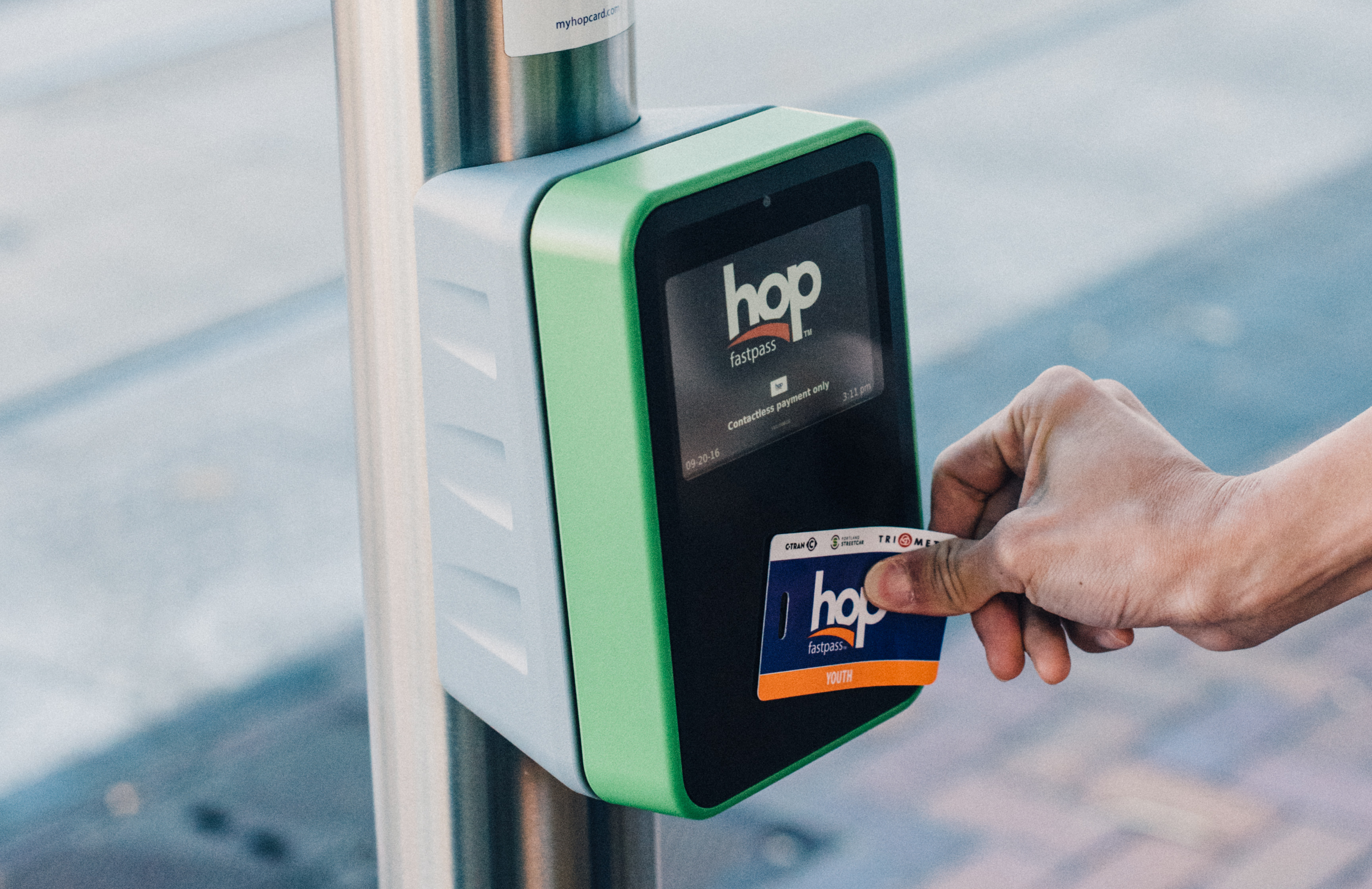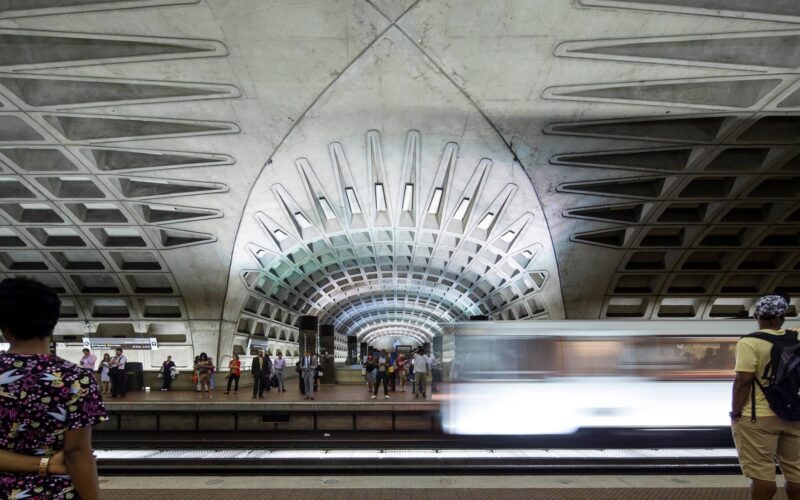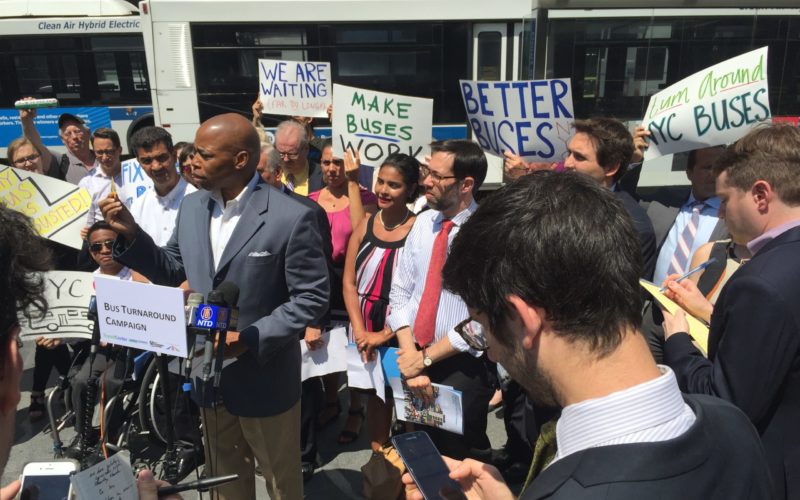
Portland’s transit system has become one of the first in the US to adopt a fare payment policy designed to end the problem of people who can afford the least paying the most. It’s called fare capping, or “pass earning” in Portlandia parlance. With the debut of the “Hop Fastpass” open payment system in June, riders on TriMet, C-TRAN and the Portland Streetcars purchasing single rides now benefit from daily caps on the cumulative cost of those rides. No longer will having the means to buy in bulk correlate to monetary savings. According to TriMet’s official release, “if you tap the Fastpass twice in a day, you’ll earn a day pass. Any more rides that day are free. No more guessing whether you might need to make a second or third trip later in the day.” The same goes for monthly passes – once your number of taps has reached the cost of a month pass, you can ride free for the rest of the month.
Both Houston Metro and AC Transit have built fare capping into their day pass products, but Portland has taken it a step further by applying the mechanism to monthly passes as well.
As TriMet’s public information officer Tia York explains, “We equate access to transit with access to opportunity, and this payment solution is designed to reduce upfront costs for our riders.” York indicated that fare evasion has been a prevailing issue in Portland, and says that this system makes it easier for “riders to do the right thing.” She explains that the new pass earning policy emerged out of conversations with Portland’s advocacy community, and is just one of many strategies TriMet is using to make public transportation more equitable.
In terms of revenue lost, multiple analyses conducted by the agency show a 1 – 1.5% reduction in revenue. However, York says TriMet expects that figure to be offset somewhat because electronic fare payment reduces the cost of cash collection and the hardware and maintenance associated with it.
The fare capping mechanism has been deployed most famously by Transport for London, one of the largest transit agencies in the world. TransitCenter hosted a fare payment workshop last November that featured the head of business development at TFL, Matthew Hudson. During his presentation, he stressed that fare capping has vastly improved their customers’ experience without sacrificing the company’s bottom line.
As we’ve argued, the New York City MTA would do well to build capping into their new open fare payment system. If the policy is adopted, riders could begin seeing relief as soon as mid-2018 when the system’s phased roll-out is scheduled to begin.
 On the Brink: Will WMATA’s Progress Be Erased by 2024?
On the Brink: Will WMATA’s Progress Be Erased by 2024?
The experience of being a WMATA rider has substantially improved over the last 18 months, thanks to changes the agency has made like adding off-peak service and simplifying fares. Things are about to get even better with the launch of all-door boarding later this fall, overnight bus service on some lines starting in December, and an ambitious plan to redesign the Metrobus network. But all of this could go away by July 1, 2024.
Read More A Bus Agenda for New York City Mayor Eric Adams
A Bus Agenda for New York City Mayor Eric Adams
To create the “state-of-the-art bus transit system” of his campaign platform, Mayor Adams will have to both expand the quantity and improve the quality of bus lanes. We recommend these strategies to get it done.
Read More